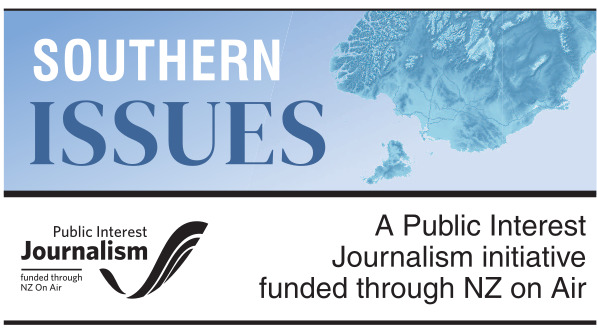
In what has become an unfortunate perennial, the call has once again gone out to try to combat generally low turnout ahead of the start of voting on Friday.
Youth voter turnout has historically been low.

A 2016 post-election survey conducted by Local Government New Zealand found just 39% of those in the 18-24 cohort voted, a rate nearly half the average turnout rate.
But was it apathy, or a lack of education, driving the statistic?
For Bayfield High School pupils, it was the latter.
The Otago Daily Times caught up with a class of year 13 English pupils at the Dunedin school to hear their thoughts on the looming elections.
Of the 17 pupils in the class, four were 18. All four said they were planning to vote.
Almost everyone knew there was an election coming up, mostly from seeing election hoardings around town.
They were vague on the details of what councils do, however, and some said they would not feel confident voting without more education.
"It’s not something we learn in school. It’s sort of just general knowledge you gain," Eleanor Baldi (18) said.
They see the avenues for that as more civics education at school, and increased engagement from councils and candidates with young voters.
"I think in general schools would be a good option, not only with councils but with Parliament and stuff. People our age don’t actually know that much about political systems, and local council systems," Sofea Haizal (17) said.
A few candidates have taken to TikTok to promote their campaigns, a tactic the teens approved of.
"It would be a good marketing technique to engage with the same kind of media that people of our age group engage in," Hana Alagbary (17) said.
Her classmates agreed with the need for social media engagement, talking to young voters on the platforms they use.
Some candidates may be disappointed to know they didn’t have high name recognition.
There are 42 people standing either for the Dunedin City Council, Dunedin’s mayoralty, or both. The pupils could name five — Aaron Hawkins, Mandy Mayhem-Bullock, Lee Vandervis, Carmen Houlahan and Jules Radich.
While they did not feel the council was something they were engaged with, the issues they cared about were often in local government’s remit.
Climate change was a big one.
"A good awareness of keeping Dunedin green is really good because that’s really motivating our generation ... It would be a sense of comfort for a lot of people as well," Margie Cleavin (17) said.
Sofea said most of the people running for mayor were "not in the younger age range".
"Getting more engagement will get people more interested in council, and younger people running for leadership positions, which I think is important for our city because I’m sure everyone here would agree, Dunedin is kind of old so having a younger stream of people be interested in council and voting, as well as in the future possibly running for mayor, is probably really important."
Paige Brown (17) wanted councillors to be more passionate about the city.
"I feel like the councillors say that we’re green but we’re still using coal in our rail systems and our music scene is amazing but we’re shutting down our music scene that we’ve got, which means they’re not really passionate about things Dunedin is known for."
Other issues were roadworks and roading changes, being transparent about spending, and keeping promises.
While it might be a little too late for this year’s year 13 pupils, there are changes coming.
Associate Education Minister Jan Tinetti said schools had the flexibility to design their own curriculum, guided by the New Zealand Curriculum (NZC).
Through the social sciences learning area of the NZC, pupils developed their knowledge of how governments work and how rights and responsibilities impacted individuals and groups, she said.
"They also explore the relationship between political, legal, economic, structural and social aspects of society, as well as how to take social action as responsible and informed citizens."
The Ministry of Education was refreshing the curriculum, she said. The changes meant civics would become an essential part of every school’s curriculum.
The refreshed social sciences learning area would be released for use in schools across New Zealand in term 4 this year.








